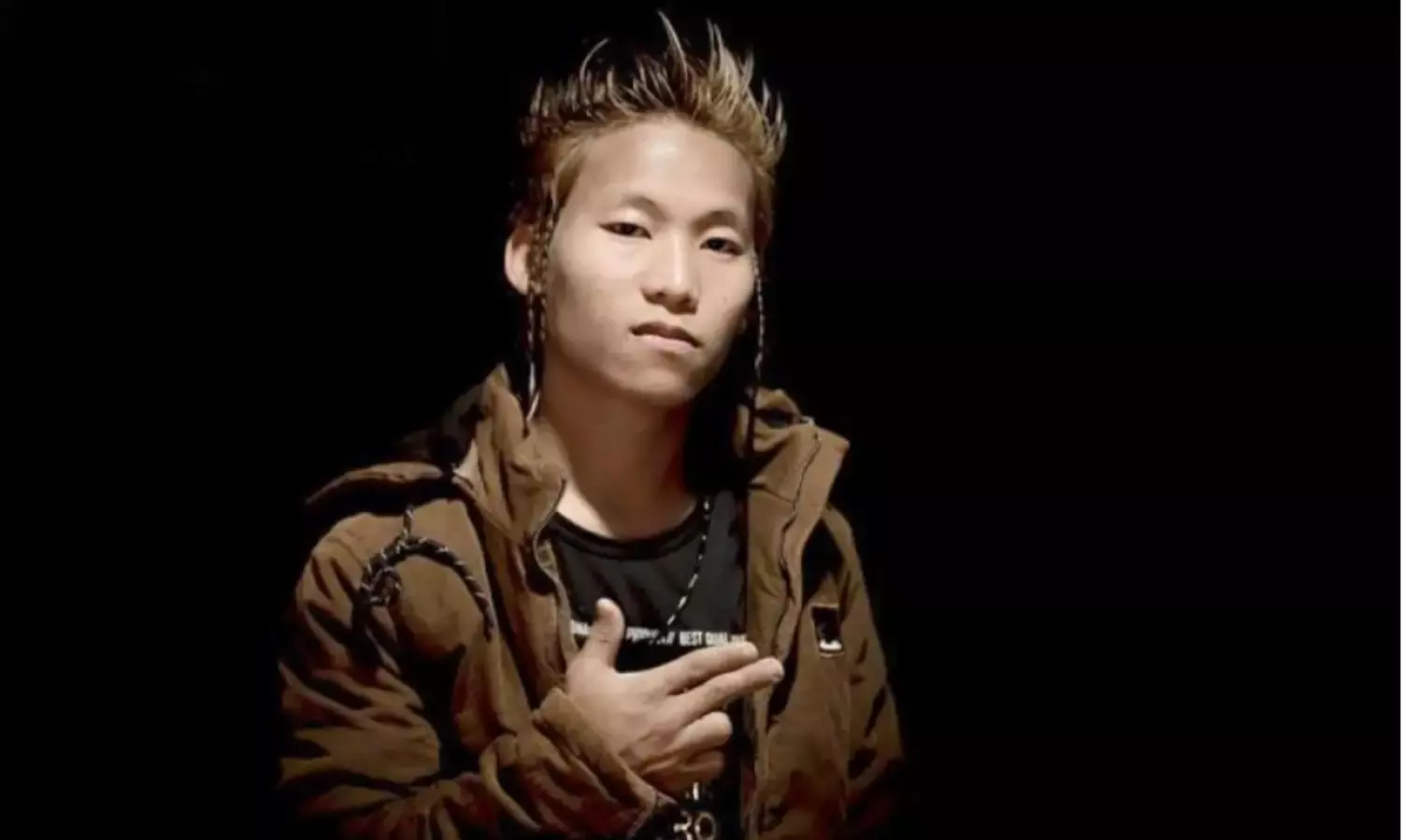'I Am Indian': North East Youth Turn To Music To Challenge Stereotypes
Talented rappers from the North East

K4 Kekho, the new upcoming rap artist from Arunachal Pradesh, has always found inspiration in the serene landscape of the North-East. Coming from a generation of North-Eastern youth that frequently travels to the rest of India for purposes of education and career prospects, Kekho Thiamko’s music is deeply rooted in social issues and acts as a tool of generating political awareness. “I’ve never been to Delhi or Mumbai, in fact, I’ve never travelled beyond the North-East, and yet the experiences shared by my friends who’ve lived in these places have moved me deeply.”, says K4, when asked about why he chooses to rap about politically charged issues instead of tapping into the multiple other themes available for music artists today.
K4’s popular songs include ‘I am Indian’, the lyrics of which tap into rampant racism and systemic discrimination faced by North-Easterners in other parts of the country. He, however, is also quick to mention that “racism doesn’t just exist in other parts of India. North-East needs to take its fair amount of the blame too. A lot of non-tribals are discriminated in Arunachal Pradesh and the feeling, I’m sure, is similar to what my friends felt when they went to study outside.”
The fan base and audience for these music videos is diverse, and on a welcome note, it’s heartening to note that youngsters from all parts of the country like K4’s rap and have positive comments to write on his YouTube videos.
A similar experience is also shared by Rahul Rajkhowa, a popular rap artist from Guwahati, who’s now based in Delhi to pursue his music career. “There are two kinds of people who come to Delhi from Assam: the type that’s politically aware and the type that likes to party. To remove the assumptions and stereotypes that people hold about North-Easterners, I think it’s important that when we come to Delhi, we try and make friends from all parts of the country and not just fraternize with people from our own city or state. We need to help make the change too.”
Having just come back to Delhi after touring multiple cities in the country, Rahul is easily at the top of his game right now. Crediting his success to the genre of music he chooses, he says, “I chose rap because the lyrics can be blunt and outright, I didn’t want to use metaphors like one does in poetry. I think the political issues that we face today, not necessarily just racism, need to be expressed bluntly and openly, in a way that the audience can be impacted by it. And these problems are everywhere. Female feticide and honor killing in multiple states, drug abuse in the North-East; we need the youth to be aware and do something about it. The idea is to understand each other’s view.”
A lot of individuals across the North-East today are tapping into what has always been their strength as a means to express long faced political issues and social dogmas: music. While Rajkhowa has rapped about the recent incidents in JNU, in a music video that went on to be loved by his audience, Ugen Bhutia, a rap artist from Gangtok, raps about the mostly non-vocalised discrimination that people from the North-East face in terms of opportunities in other parts of the country. Bhutia firmly maintains that he doesn’t belong to the ‘music industry’, however, he has been recording and producing music since 2014. His song ‘Call me Indian’ which released in the very same year, trended for a long time and was received very well on social media. During his time in NIT Bhopal as an engineering student, he faced a lot of racism, which then went on to shape his music and the lyrics that he wrote. “I made songs about racism then because I felt I had to express it somehow; today, I don’t necessarily feel the intensity of it so much, so I don’t write about it as much.”
All three of the young, talented rappers agree that while the fan base is large and also diverse, it’s difficult for one to sustain themselves in the industry as independent artists. They believe that emerging artists should support one another and collaborate, not simply for solidarity, but also to provide support for this kind of music that’s quite clearly the need of the hour. The fact that they have different kinds of youngsters listening to their music also means that their impact is far greater than what it would have been, had their audience base just been restricted to the North-East. To be using entertainment and music as a tool to spread political and social awareness through personal accounts and experiences, makes these artists not only relatable and therefore, popular with large fan followings in their region, but also extremely relevant to the current political climate.



